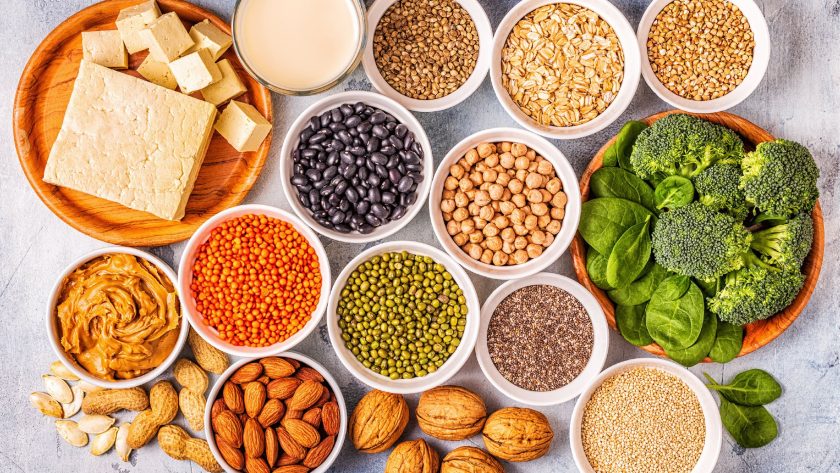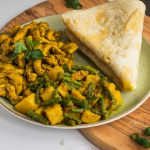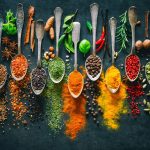While vegetarianism is arguably the best food for its nutritional benefits, the most common concern for vegetarians is a potential protein deficiency. It is a common misconception that only non-vegetarian food can provide the necessary amount of protein for the human body. But it’s not true, as there are many plant-based protein-rich foods that even provide a better source of proteins than non-vegetarian food.
Even experts have admitted that a well-balanced meat-less diet can offer all the nutrients your body needs, including proteins. Notably, foods high in protein can help improve digestion, muscle strength, and weight loss.
Vegan diets, when thoughtfully planned and primarily composed of minimally processed foods, are deemed healthy for all life stages. However, vegan diets that heavily rely on ultra-processed plant foods may not offer the same benefits. If you’re concerned about your daily protein intake, let’s take a look at the top 10 protein-rich foods for vegetarians.
10 Protein-rich Foods for Vegetarian
Here’s a list of the top 10 plant-based protein foods for vegans:
1. Legumes
Legumes, including beans, peas, lentils, and chickpeas, are a group of plants that are part of our diet. As noted by Preiato, incorporating just a half cup of beans into your meals can contribute an extra eight grams of protein.
When consumed as part of a balanced diet, legumes offer a rich supply of vitamins and minerals, playing a crucial role in regulating blood sugar levels and cholesterol.
Here’s a look at the protein content in different types of legumes:
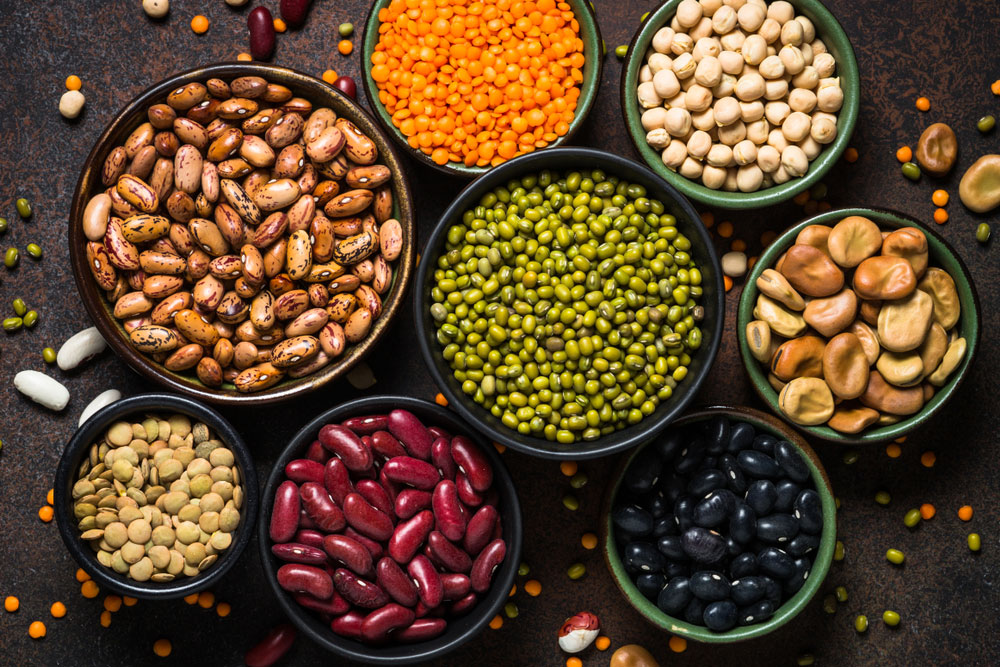
- Red kidney beans: A cup offers 15.3 grams of protein
- Black beans: A cup contains 15.2 grams of protein
- Lentils: A cup provides 18 grams of protein
- Green peas: A cup has 8.58 grams of protein
- Chickpeas: A cup includes 14.5 grams of protein
2. Nuts
Despite being high in fat, nuts are a good source of protein. They are also packed with various nutrients, including omega-3 fatty acids and polyphenols. Walnuts are known to have the highest polyphenol content.
The best part about nuts is their versatility – they can be added to almost any dish. For instance, if you’re someone who enjoys a bowl of instant oatmeal at work, consider enhancing its nutritional value by adding a tablespoon of hemp seeds or ground walnuts, as suggested by McPherson.
Here’s a quick look at the protein content in some popular nuts (per 100 grams):
- Peanuts: 23.2 grams
- Pistachios: 20.5 grams
- Almonds: 21.4 grams
- Cashews: 17.4 grams
- Hazelnuts: 13.5 grams

Remember, incorporating these protein-rich nuts into your diet can contribute to a balanced and nutritious eating plan.
3. Whole grains
A single serving of oatmeal, when cooked, provides around 5 grams of protein and 4 grams of fiber, both crucial for your daily nutritional intake. The best part? You can customize your oatmeal with a variety of toppings, whether you prefer it sweet or savory.
Quinoa is another grain packed with nutrients and antioxidants. It’s gluten-free and provides all nine essential amino acids in the right proportions.
Here’s a quick rundown of the protein content in various grains per cup:
- Kamut: Contains 9.82 grams of protein
- Amaranth: Offers 9.35 grams of protein
- Quinoa: Provides 8.14 grams of protein
- Couscous: Has 5.95 grams of protein
- Oats: Delivers 5.94 grams of protein

These grains are not only delicious but also packed with protein, making them a great addition to your diet.
4. Seeds
Seeds are considered the superfoods, and for good reason. Consider chia seeds, for instance. They are a powerhouse of essential nutrients such as magnesium, calcium, fiber, omega-3 fatty acids, and even antioxidants that help combat diseases. What’s more, they are a great source of protein, with a single ounce providing 5 grams.
Seeds like chia, hemp, flax, and sunflower are high in protein and can be easily added to a variety of foods, from yogurts and smoothies to salads, making them a convenient addition to your meals.
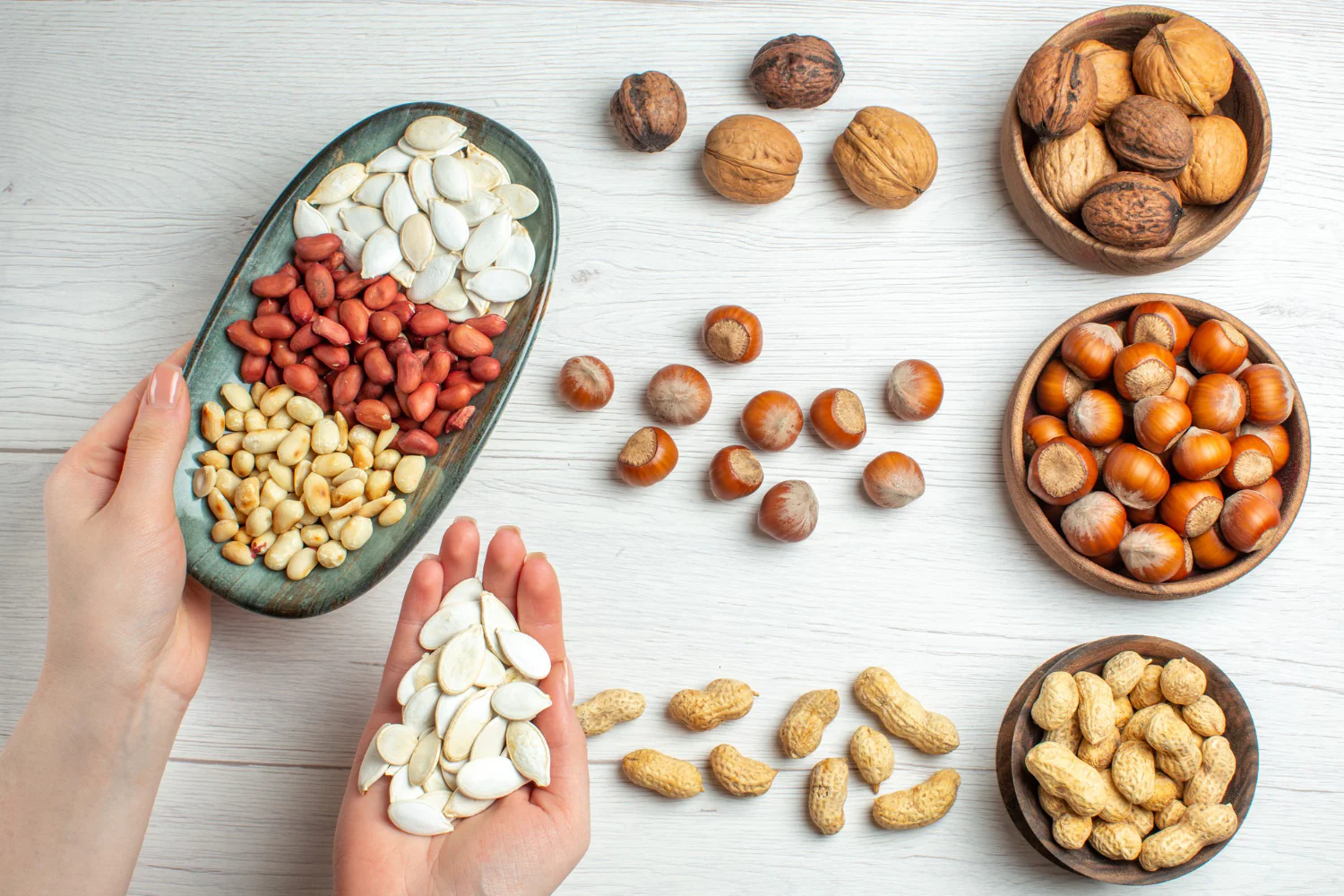
Here’s a quick look at the protein content in various seeds:
- Sunflower seeds: Provide 29.1 grams of protein per cup
- Pumpkin seeds: Contain 11.9 grams of protein per cup
- Chia seeds: Offer 4.68 grams of protein per 1 ounce
- Hemp seeds: Deliver 9.48 grams of protein per 3 tablespoons
5. Soy Products
Soy-based foods like tempeh, tofu, and edamame are fantastic alternatives to meat for both vegetarians and meat-eaters. Tofu and tempeh are not only rich in protein but also supply essential nutrients like vitamins C, A, and calcium.
A serving of ⅔ cup of edamame provides 9 grams of protein, making it a satisfying snack (add a pinch of salt for an extra kick!). Here’s the protein content for each:
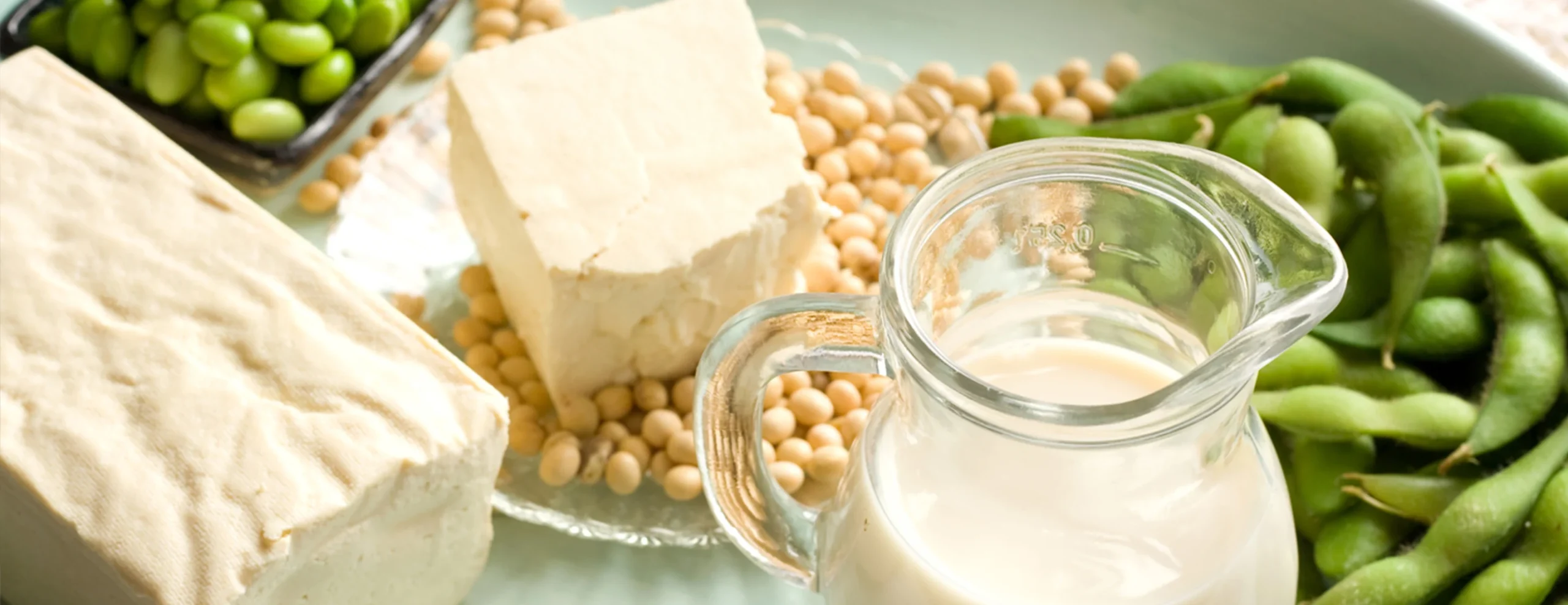
- Tofu: A cup of tofu packs a whopping 43.6 grams of protein.
- Edamame: Each cup of edamame contains 18.4 grams of protein.
- Tempeh: Tempeh offers 33.7 grams of protein per cup.
These soy products are not just nutritious, but they also add variety to your meals.
6. Plant Protein Powders
If you’re feeling tired but don’t want to have a full meal, you can make a quick shake using the plant protein powders. These protein powders include pea proteins, soya protein, and hemp protein. These plant-based protein powders have about 20 grams of protein per 100-gram serving.
- Pea Protein: 43.6 grams of protein per cup
- Soy Protein: 38.5 grams of protein per cup
7. Vegetables & Leafy Greens
Protein is often associated with meat, but did you know that vegetables can also be a good source of protein? For instance, Brussels sprouts have approximately 4 grams of protein and fiber per cup.
Not only that, they supply 24% of the daily recommended intake of vitamin A and more than 100% of the daily value for vitamins C and K. There are other vegetables that are rich in protein, such as spinach, asparagus, and artichoke hearts.
Here’s a quick look at their protein content:
- Spinach: Each cup contains 0.85 grams of protein
- Kale: Each cup is packed with 0.61 grams of protein
- Watercress: Each cup offers 0.78 grams of protein
- Mustard greens: Each cup delivers 1.6 grams of protein
So, next time you’re looking for a protein boost, don’t forget to consider these leafy greens.

8. Potatoes
If you’re looking for another reason to enjoy potatoes, here’s one: they’re surprisingly nutritious when cooked correctly. A medium-sized potato (about 100 grams) contains roughly 4 grams of protein.
Not only that, but baked potatoes are an excellent source of potassium, a mineral that plays a crucial role in regulating blood pressure and ensuring the normal functioning of muscles and nerves.
To make your potato even healthier and tastier, avoid frying it in vegetable oil. Instead, try baking or broiling it with garlic for an added flavor boost.
Here’s a quick overview of the protein content in different types of potatoes (per 100 grams):
- Russet potatoes: 2.63 grams of protein
- Red potatoes: 2.3 grams of protein
- White potatoes: 2.1 grams of protein
9. Nutritional Yeast
With its delightful cheesy taste, nutritional yeast is more than just a flavor enhancer. It’s packed with essential B vitamins such as thiamine and riboflavin, and it’s a good source of zinc and fiber. Moreover, it’s protein-rich, offering 3 grams of protein in just 2 tablespoons. It’s a versatile ingredient that can be sprinkled on a wide range of foods like pizza, popcorn, rice, and vegetables to add a burst of flavor.
Here’s a quick look at their protein content:
- Unfortified Yeast provides 1.6 grams of protein per cup
- Fortified Yeast offers 0.8 grams of protein per cup
10. Quinoa
Quinoa is a complete protein source, offering nearly 8 grams of protein per cup. But its benefits extend beyond just protein. Quinoa is also rich in fiber, vitamins, minerals, and plant-derived antioxidants, making it an excellent choice for a healthful diet.
Here’s a breakdown of the protein content in different types of quinoa:
- White Quinoa: Contains 7.64 grams of protein per 100 grams
- Red Quinoa: Contains 7.24 grams of protein per 100 grams
- Black Quinoa: Contains 7.78 grams of protein per 100 grams
Conclusion
Let’s debunk a common myth that only non-vegetarian diets can provide sufficient protein. In fact, a vegetarian or plant-based diet can absolutely cater to your protein needs. Above, we have listed a wide variety of protein-packed foods that can be used to whip up tasty and nutrient-rich meals, supporting your journey towards health and fitness. So, rest assured, you’re not missing out on your protein intake by choosing a vegetarian lifestyle.
